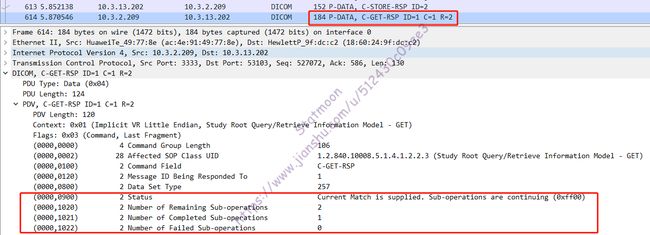- 【一起学Rust | 设计模式】习惯语法——使用借用类型作为参数、格式化拼接字符串、构造函数
广龙宇
一起学Rust#Rust设计模式rust设计模式开发语言
提示:文章写完后,目录可以自动生成,如何生成可参考右边的帮助文档文章目录前言一、使用借用类型作为参数二、格式化拼接字符串三、使用构造函数总结前言Rust不是传统的面向对象编程语言,它的所有特性,使其独一无二。因此,学习特定于Rust的设计模式是必要的。本系列文章为作者学习《Rust设计模式》的学习笔记以及自己的见解。因此,本系列文章的结构也与此书的结构相同(后续可能会调成结构),基本上分为三个部分
- 四章-32-点要素的聚合
彩云飘过
本文基于腾讯课堂老胡的课《跟我学Openlayers--基础实例详解》做的学习笔记,使用的openlayers5.3.xapi。源码见1032.html,对应的官网示例https://openlayers.org/en/latest/examples/cluster.htmlhttps://openlayers.org/en/latest/examples/earthquake-clusters.
- 语文主题教学学习笔记之87
东哥杂谈
“语文主题教学”学习笔记之八十七(0125)今天继续学习小学语文主题教学的实践样态。板块三:教学中体现“书艺”味道。作为四大名著之一的《水浒传》,堪称我国文学宝库之经典。对从《水浒传》中摘选的单元,教师就要了解其原生态,即评书体特点。这也要求教师要了解一些常用的评书行话术语,然后在教学时适时地加入一些,让学生体味其文本中原有的特色。学生也要尽可能地通过朗读的方式,而不单是分析讲解的方式进行学习。细
- esp32开发快速入门 8 : MQTT 的快速入门,基于esp32实现MQTT通信
z755924843
ESP32开发快速入门服务器网络运维
MQTT介绍简介MQTT(MessageQueuingTelemetryTransport,消息队列遥测传输协议),是一种基于发布/订阅(publish/subscribe)模式的"轻量级"通讯协议,该协议构建于TCP/IP协议上,由IBM在1999年发布。MQTT最大优点在于,可以以极少的代码和有限的带宽,为连接远程设备提供实时可靠的消息服务。作为一种低开销、低带宽占用的即时通讯协议,使其在物联
- 《转介绍方法论》学习笔记
小可乐的妈妈
一、高效转介绍的流程:价值观---执行----方案一)转介绍发生的背景:1、对象:谁向谁转介绍?全员营销,人人参与。①员工的激励政策、客户的转介绍诱因制作客户画像:a信任;支付能力;意愿度;便利度(根据家长具备四个特征的个数分为四类)B性格分类C职业分类D年龄性别②执行:套路,策略,方法,流程2、诱因:为什么要转介绍?认同信任;多方共赢;传递美好;零风险承诺打动人心,超越期待。选择做教育,就是选择
- JAVA学习笔记之23种设计模式学习
victorfreedom
Java技术设计模式androidjava常用设计模式
博主最近买了《设计模式》这本书来学习,无奈这本书是以C++语言为基础进行说明,整个学习流程下来效率不是很高,虽然有的设计模式通俗易懂,但感觉还是没有充分的掌握了所有的设计模式。于是博主百度了一番,发现有大神写过了这方面的问题,于是博主迅速拿来学习。一、设计模式的分类总体来说设计模式分为三大类:创建型模式,共五种:工厂方法模式、抽象工厂模式、单例模式、建造者模式、原型模式。结构型模式,共七种:适配器
- 新能源汽车 BMS 学习笔记篇—BMS 基本定义及分类
WPG大大通
其他笔记汽车BMS经验分享新能源电池
一、BMS定义1、概念:BMS(BatteryManagementSystem)即电池管理系统,其管理对象是二次电池(充电电池或蓄电池),其主要目的是电池的利用率,防止电池出现过度充电和过度放电,可应用于电动汽车、电瓶车、机器人、无人机等图片来源:腾讯网https://new.qq.com《标准普尔警告,电动汽车电池生产面临供应链和地缘政治风险》2、四大功能①感知和测量:检测电池的电压、电流、温度
- 吴恩达深度学习笔记(30)-正则化的解释
极客Array
正则化(Regularization)深度学习可能存在过拟合问题——高方差,有两个解决方法,一个是正则化,另一个是准备更多的数据,这是非常可靠的方法,但你可能无法时时刻刻准备足够多的训练数据或者获取更多数据的成本很高,但正则化通常有助于避免过拟合或减少你的网络误差。如果你怀疑神经网络过度拟合了数据,即存在高方差问题,那么最先想到的方法可能是正则化,另一个解决高方差的方法就是准备更多数据,这也是非常
- 个人学习笔记7-6:动手学深度学习pytorch版-李沐
浪子L
深度学习深度学习笔记计算机视觉python人工智能神经网络pytorch
#人工智能##深度学习##语义分割##计算机视觉##神经网络#计算机视觉13.11全卷积网络全卷积网络(fullyconvolutionalnetwork,FCN)采用卷积神经网络实现了从图像像素到像素类别的变换。引入l转置卷积(transposedconvolution)实现的,输出的类别预测与输入图像在像素级别上具有一一对应关系:通道维的输出即该位置对应像素的类别预测。13.11.1构造模型下
- golang学习笔记--MPG模型
xxzed
golang#学习笔记学习笔记golang
MPG模式:M(Machine):操作系统的主线程P(Processor):协程执行需要的资源(上下文context),可以看作一个局部的调度器,使go代码在一个线程上跑,他是实现从N:1到N:M映射的关键G(Goroutine):协程,有自己的栈。包含指令指针(instructionpointer)和其它信息(正在等待的channel等等),用于调度。一个P下面可以有多个G1、当前程序有三个M,
- 碎片化学习笔记分享
剑客写作
现在生活节奏很快,学习力成为了我们拥有的最大财富。碎片化学习是最好的。首先,不要太过自信,学会虚心学习,是我们面对现实的好方法,才能够常保新鲜。平时我们要拥有什么工具呢?1.思维导图2.写在印象笔记里3.听书,消燥耳机4.教学输出5.录音笔里面最好的方式就是教学输出法,记忆里最好。当输出时我们集中精力记忆里最好。有人认为缩短睡眠时间来学习,其实最好的方式是保持最好的睡眠,记忆力会更好。剥夺睡眠,会
- 《随园诗话》学习笔记三百零六
飞鸿雪舞
卷五凡诗之传者,都在灵性五、五斗米与诗【原文】丁丑,余觅一抄书人,或荐黄生,名之纪,号星岩者,人甚朴野。偶过其案头,得句云;“破庵僧卖临街瓦,独井人争向晚泉。”余大奇之,即饷米五斗。自此欣然大用力于诗。五言句云:“云开日脚直,雨落水纹圆。竹锐穿泥壁,蝇酣落酒尊。钓久知鱼性,樵多识树名。笔残芦并用,墨尽指同磨。"七言云:"小窗近水寒偏觉,古木遮天曙不知。旧生萍处泥犹绿,新落花时水亦香。旧甓恐闲都贮水
- rabbitmq
楚楚ccc
Java系列rabbitmq分布式
1.消息服务概述、rabbitmq核心概念消息服务概述:大多数应用中,可通过消息服务中间件来提升系统异步通信,扩展解耦能力两个重要概念:消息代理(messagebroker)和目的地(destination)。当消息发送者者发出消息后,将由消息代理接管,消息代理保证将消息传递至目的地两种形式的目的地:队列(queue):点对点的消息通信(point-to-point)主题(topic):发布(pu
- D15 论语学习笔记
许小兔Angelina
悟:上级对下级的宽容:凡事成定局,就不你说了;已接近完结的事,也没必要匡正和挽回了;既然是过去的事,也没必要追究得失和责任了。对待孩子教育也是,不用“问责制”,这样容易让孩子因为害怕担责而说谎。应当循循善诱,避免再犯错才是最重要的。3.16:【原文】子曰:“射不主皮,为力不同科,古之道也。”【译文】孔子说:“射箭比赛不以射透为主,而主要看是否射得准确,因为人的力量不同,自古如此。”3.17:【原文
- 网络工程师学习笔记(一)
专业白嫖怪
网络工程师学习笔记学习笔记网络
为了备战下半年的软考——网络工程师,利用每天的下班的闲暇时间看书听课,然后自己手敲整理的系列资料。希望能够对你们有所帮助第一章__计算机网络概述计算机网络的定义:将分散的具有独立运算功能的计算机系统,通过通信线路和通信设备进行连接起来的实现资源的共享。ARPAnet网络的特征:资源共享、分散控制、分组交换1946年第一台通用计算机—埃尼亚克能够相互连通进行数据交换。1960年提出巨型网络,出现了对
- K8S学习笔记02——K8S组件
沉淅尘
#Docker#K8Skubernetes
Kubernetes组件一、控制平面组件(ControlPlaneComponents)(1)kube-apiserver(2)etcd(3)kube-scheduler(4)kube-controller-manager(5)cloud-controller-manager二、Node组件1.kubelet2.kube-proxy3.容器运行时(ContainerRuntime)三、插件(Add
- 「Python」2020.04.08学习笔记 | 第六章文件(a+)模式+把随机手机号写入文件小练习
Yetta的书影屋
学习测试开发的Day97,真棒!学习时间为40M第九次全天课(下午视频二20M-50M)>>>fp.seek(0)0>>>fp.read()'你好11你好12你好13你好14你好15\n你好16\n你好17\n你好18\n'>>>fp.seek(0,0)0>>>fp.write("*********************************\n")34>>>fp.seek(0,0)0>>>f
- 《金文成〈中庸〉学习笔记401。2020-2-24》
金吾生
《金文成〈中庸〉学习笔记401。2020-2-24》今天是庚子年戊寅月丁酉日,二月初二,2020年2月24日星期一。二月二龙抬头。第二十二章【唯天下至诚,为能尽其性;能尽其性,则能尽人之性;能尽人之性,则能尽物之性;能尽物之性,则能赞天地之化育;能赞天地之化育,则可以与天地参矣。】上一节,船山讲解说,性作为天用之本体,于圣人和匹夫匹妇而言并无二致,区别来自于诚。诚的区别来自于纯粹与掺杂。掺杂什么呢
- CDGA学习笔记三-《数据安全》
zy_chris
网络安全
七、数据安全7.1引言数据安全包括安全策略和过程的规划、建立与执行,为数据和信息资产提供正确的身份验证、授权、访问和审计。要求来自以下方面:(1)利益相关方(2)政府法规(3)特定业务关注点(4)合法访问需求(5)合同义务7.1.1业务驱动因素1、降低风险信息安全首先对组织数据进行分级分类,对组织数据进行分类分级的整个流程:1)识别敏感数据资产并分类分级2)在企业中查找敏感数据3)确定保护每项资产
- vue学习笔记——关于对Vue3 ref(), toRef(), toRefs(), unref(), isRef(), reactive()方法的理解。
chen_sir_sh
vue学习笔记javascript前端vue
VUE3出现了很多新的API,下面是自己的一些理解进行的总结。欢迎大家一起交流补充。ref()使用ref创建一个数据类型,ref有value这个属性constname1={age:"14",name:"bob1"};constname2=ref({name:"bob2"});//使用ref创建一个数据类型相对于reactive,ref有value属性name2.value="bob3"consol
- 遇到僵尸进程,怎么处理---学习笔记
summer@彤妈
性能优化linux
僵尸进程解释当iowait升高时,进程很可能因为得不到硬件的响应,而长时间处于不可中断状态。从ps或者top命令的输出中,你可以发现它们都处于D状态,也就是不可中断状态(UninterruptibleSleep)。既然说到了进程的状态,进程有哪些状态你还记得吗?我们先来回顾一下。top和ps是最常用的查看进程状态的工具,我们就从top的输出开始。下面是一个top命令输出的示例,S列(也就是Stat
- C++学习笔记----6、内存管理(五)---- 智能指针(3)
王俊山IT
c++学习笔记开发语言
2、shared_ptr有时候吧,有些对象或者一部分代码需要同一个指针的拷贝。那么unique_ptr不能被拷贝,因此就不能用于些场景。这样的话,std::shared_ptr就是一个支持能够被拷贝的拥有共享属主的智能指针。但是,如果有指向同一个资源的多个shared_ptr实例,那么怎么知道什么时候去释放资源呢?这可以通过对于引用记数来解决,这个我们以后再聊。首先,让我们看一下怎么构造与使用sh
- 【学习笔记】武志红心理学—潜意识决定命运
万万千千
冰山一角什么构成了我们的命运?命运是由我们的显意识和潜意识来决定的。我们可以用一张图做一个比喻。看过“冰山一角”图片的都知道,潜意识就是水面以下的部分,显意识是水面以上的部分,从体积来看,潜意识占了大部分,而显意识只是冰山一角,纵向来看,庞大的潜意识支撑着冰山一角的显意识,才得以让冰山漂浮在水面。延伸到我们的人生,我们对自己显意识层面的想法很容易感知到,所以我们会说这是“我”自己做的选择。而潜意识
- Prism 教程
yang_B621
PrismIOC
http://t.csdnimg.cn/VXSSvhttps://blog.csdn.net/u010476739/article/details/119341731Prism-随笔分类-Hello——寻梦者!-博客园(cnblogs.com)C#IoC学习笔记-缥缈的尘埃-博客园(cnblogs.com)WPF_SchuylerEX的博客-CSDN博客
- 绘本讲师训练营【第30期】2/21阅读原创《绘本之力》学习笔记2
郑贤钰
30028郑贤钰今天读了绘本之力《留在灵魂里的东西》读了心里有非常大的感触!两个年幼什么都不懂的孩子,为了自己心爱的东西,攒下来自己的零花钱,却买了一个自己不知道怎么用的东西,当他们觉得这个东西根本就不好,准备扔掉的时候,这是故事中的有趣有爱的老爷爷出现了,帮助孩子们再一次发现之前别人拉出优美的音乐,原来自己买的这一个琴,自认为没用的琴也能够经过老爷爷熟练的演奏也能拉出这样优美的声音,这让孩子们十
- 仿老师悟
耕海者
毕业十年了,今天去拜访老师,看到老师的学习笔记,看到老师努力学习,积极提高的状态,我觉着自己真是有些懈怠了,孩子们,老师的老师都在孜孜不倦,我们岂能偷懒!
- C++学习笔记----7、使用类与对象获得高性能(一)---- 书写类(2)
王俊山IT
c++学习笔记开发语言
2.2、定义成员函数前面对SpreadsheetCell类的定义足以让你生成类的对象。然而,如果想调用setValue()或者getValue()成员函数,连接器就会抱怨这些函数没有定义。这是因为到目前为止,这些成员函数只有原型,而还没有实现。通常,类的定义会在模块接口文件。对于成员函数的定义,你有一个选择:可以在模块定义文件或者在模块实现文件。下面是SpreadsheetCell类,在类内对成员
- Spring6学习笔记4:事务
·云扬·
SSMJava#Spring学习笔记spring
1JdbcTemplate1.1简介Spring框架对JDBC进行封装,使用JdbcTemplate方便实现对数据库操作准备工作①搭建子模块搭建子模块:spring-jdbc-tx②加入依赖org.springframeworkspring-jdbc6.0.2mysqlmysql-connector-java8.0.30com.alibabadruid1.2.15③创建jdbc.propertie
- 连通无向图一般中心的算法及其matlab程序详解
夏天天天天天天天#
图论算法matlab图论
#################本文为学习《图论算法及其MATLAB实现》的学习笔记#################若服务点只允许取在各顶点上,而服务对象却取在各顶点及各边(或弧)上的点,则在所有顶点中选定一个顶点作为图的一般中心其条件是该点离它本身的最远服务对象(包括顶点及各边(或弧)上的点)的距离达到极小值。寻找无向图的一般中心对解决网络最佳服务点确定的问题是十分有效的,使得服务对象的范围
- 学习笔记:FW内容安全概述
TKE_yinian
内容安全概述信息安全概述主要威胁关于防护简介内容安全威胁应用层威胁内容安全技术WEB安全应用安全入侵防御检测邮件安全数据安全网络安全反病毒全局环境感知沙箱检测信息安全概述•信息安全是对信息和信息系统进行保护,防止未授权的访问、使用、泄露、中断、修改、破坏并以此提供保密性、完整性和可用性。•为关键资产提供机密性、完整性和可用性(CIA三元组)保护是信息安全的核心目标。CIA(Confidential
- java类加载顺序
3213213333332132
java
package com.demo;
/**
* @Description 类加载顺序
* @author FuJianyong
* 2015-2-6上午11:21:37
*/
public class ClassLoaderSequence {
String s1 = "成员属性";
static String s2 = "
- Hibernate与mybitas的比较
BlueSkator
sqlHibernate框架ibatisorm
第一章 Hibernate与MyBatis
Hibernate 是当前最流行的O/R mapping框架,它出身于sf.net,现在已经成为Jboss的一部分。 Mybatis 是另外一种优秀的O/R mapping框架。目前属于apache的一个子项目。
MyBatis 参考资料官网:http:
- php多维数组排序以及实际工作中的应用
dcj3sjt126com
PHPusortuasort
自定义排序函数返回false或负数意味着第一个参数应该排在第二个参数的前面, 正数或true反之, 0相等usort不保存键名uasort 键名会保存下来uksort 排序是对键名进行的
<!doctype html>
<html lang="en">
<head>
<meta charset="utf-8&q
- DOM改变字体大小
周华华
前端
<!DOCTYPE html PUBLIC "-//W3C//DTD XHTML 1.0 Transitional//EN" "http://www.w3.org/TR/xhtml1/DTD/xhtml1-transitional.dtd">
<html xmlns="http://www.w3.org/1999/xhtml&q
- c3p0的配置
g21121
c3p0
c3p0是一个开源的JDBC连接池,它实现了数据源和JNDI绑定,支持JDBC3规范和JDBC2的标准扩展。c3p0的下载地址是:http://sourceforge.net/projects/c3p0/这里可以下载到c3p0最新版本。
以在spring中配置dataSource为例:
<!-- spring加载资源文件 -->
<bean name="prope
- Java获取工程路径的几种方法
510888780
java
第一种:
File f = new File(this.getClass().getResource("/").getPath());
System.out.println(f);
结果:
C:\Documents%20and%20Settings\Administrator\workspace\projectName\bin
获取当前类的所在工程路径;
如果不加“
- 在类Unix系统下实现SSH免密码登录服务器
Harry642
免密ssh
1.客户机
(1)执行ssh-keygen -t rsa -C "
[email protected]"生成公钥,xxx为自定义大email地址
(2)执行scp ~/.ssh/id_rsa.pub root@xxxxxxxxx:/tmp将公钥拷贝到服务器上,xxx为服务器地址
(3)执行cat
- Java新手入门的30个基本概念一
aijuans
javajava 入门新手
在我们学习Java的过程中,掌握其中的基本概念对我们的学习无论是J2SE,J2EE,J2ME都是很重要的,J2SE是Java的基础,所以有必要对其中的基本概念做以归纳,以便大家在以后的学习过程中更好的理解java的精髓,在此我总结了30条基本的概念。 Java概述: 目前Java主要应用于中间件的开发(middleware)---处理客户机于服务器之间的通信技术,早期的实践证明,Java不适合
- Memcached for windows 简单介绍
antlove
javaWebwindowscachememcached
1. 安装memcached server
a. 下载memcached-1.2.6-win32-bin.zip
b. 解压缩,dos 窗口切换到 memcached.exe所在目录,运行memcached.exe -d install
c.启动memcached Server,直接在dos窗口键入 net start "memcached Server&quo
- 数据库对象的视图和索引
百合不是茶
索引oeacle数据库视图
视图
视图是从一个表或视图导出的表,也可以是从多个表或视图导出的表。视图是一个虚表,数据库不对视图所对应的数据进行实际存储,只存储视图的定义,对视图的数据进行操作时,只能将字段定义为视图,不能将具体的数据定义为视图
为什么oracle需要视图;
&
- Mockito(一) --入门篇
bijian1013
持续集成mockito单元测试
Mockito是一个针对Java的mocking框架,它与EasyMock和jMock很相似,但是通过在执行后校验什么已经被调用,它消除了对期望 行为(expectations)的需要。其它的mocking库需要你在执行前记录期望行为(expectations),而这导致了丑陋的初始化代码。
&nb
- 精通Oracle10编程SQL(5)SQL函数
bijian1013
oracle数据库plsql
/*
* SQL函数
*/
--数字函数
--ABS(n):返回数字n的绝对值
declare
v_abs number(6,2);
begin
v_abs:=abs(&no);
dbms_output.put_line('绝对值:'||v_abs);
end;
--ACOS(n):返回数字n的反余弦值,输入值的范围是-1~1,输出值的单位为弧度
- 【Log4j一】Log4j总体介绍
bit1129
log4j
Log4j组件:Logger、Appender、Layout
Log4j核心包含三个组件:logger、appender和layout。这三个组件协作提供日志功能:
日志的输出目标
日志的输出格式
日志的输出级别(是否抑制日志的输出)
logger继承特性
A logger is said to be an ancestor of anothe
- Java IO笔记
白糖_
java
public static void main(String[] args) throws IOException {
//输入流
InputStream in = Test.class.getResourceAsStream("/test");
InputStreamReader isr = new InputStreamReader(in);
Bu
- Docker 监控
ronin47
docker监控
目前项目内部署了docker,于是涉及到关于监控的事情,参考一些经典实例以及一些自己的想法,总结一下思路。 1、关于监控的内容 监控宿主机本身
监控宿主机本身还是比较简单的,同其他服务器监控类似,对cpu、network、io、disk等做通用的检查,这里不再细说。
额外的,因为是docker的
- java-顺时针打印图形
bylijinnan
java
一个画图程序 要求打印出:
1.int i=5;
2.1 2 3 4 5
3.16 17 18 19 6
4.15 24 25 20 7
5.14 23 22 21 8
6.13 12 11 10 9
7.
8.int i=6
9.1 2 3 4 5 6
10.20 21 22 23 24 7
11.19
- 关于iReport汉化版强制使用英文的配置方法
Kai_Ge
iReport汉化英文版
对于那些具有强迫症的工程师来说,软件汉化固然好用,但是汉化不完整却极为头疼,本方法针对iReport汉化不完整的情况,强制使用英文版,方法如下:
在 iReport 安装路径下的 etc/ireport.conf 里增加红色部分启动参数,即可变为英文版。
# ${HOME} will be replaced by user home directory accordin
- [并行计算]论宇宙的可计算性
comsci
并行计算
现在我们知道,一个涡旋系统具有并行计算能力.按照自然运动理论,这个系统也同时具有存储能力,同时具备计算和存储能力的系统,在某种条件下一般都会产生意识......
那么,这种概念让我们推论出一个结论
&nb
- 用OpenGL实现无限循环的coverflow
dai_lm
androidcoverflow
网上找了很久,都是用Gallery实现的,效果不是很满意,结果发现这个用OpenGL实现的,稍微修改了一下源码,实现了无限循环功能
源码地址:
https://github.com/jackfengji/glcoverflow
public class CoverFlowOpenGL extends GLSurfaceView implements
GLSurfaceV
- JAVA数据计算的几个解决方案1
datamachine
javaHibernate计算
老大丢过来的软件跑了10天,摸到点门道,正好跟以前攒的私房有关联,整理存档。
-----------------------------华丽的分割线-------------------------------------
数据计算层是指介于数据存储和应用程序之间,负责计算数据存储层的数据,并将计算结果返回应用程序的层次。J
&nbs
- 简单的用户授权系统,利用给user表添加一个字段标识管理员的方式
dcj3sjt126com
yii
怎么创建一个简单的(非 RBAC)用户授权系统
通过查看论坛,我发现这是一个常见的问题,所以我决定写这篇文章。
本文只包括授权系统.假设你已经知道怎么创建身份验证系统(登录)。 数据库
首先在 user 表创建一个新的字段(integer 类型),字段名 'accessLevel',它定义了用户的访问权限 扩展 CWebUser 类
在配置文件(一般为 protecte
- 未选之路
dcj3sjt126com
诗
作者:罗伯特*费罗斯特
黄色的树林里分出两条路,
可惜我不能同时去涉足,
我在那路口久久伫立,
我向着一条路极目望去,
直到它消失在丛林深处.
但我却选了另外一条路,
它荒草萋萋,十分幽寂;
显得更诱人,更美丽,
虽然在这两条小路上,
都很少留下旅人的足迹.
那天清晨落叶满地,
两条路都未见脚印痕迹.
呵,留下一条路等改日再
- Java处理15位身份证变18位
蕃薯耀
18位身份证变15位15位身份证变18位身份证转换
15位身份证变18位,18位身份证变15位
>>>>>>>>>>>>>>>>>>>>>>>>>>>>>>>>>>>>>>>>
蕃薯耀 201
- SpringMVC4零配置--应用上下文配置【AppConfig】
hanqunfeng
springmvc4
从spring3.0开始,Spring将JavaConfig整合到核心模块,普通的POJO只需要标注@Configuration注解,就可以成为spring配置类,并通过在方法上标注@Bean注解的方式注入bean。
Xml配置和Java类配置对比如下:
applicationContext-AppConfig.xml
<!-- 激活自动代理功能 参看:
- Android中webview跟JAVASCRIPT中的交互
jackyrong
JavaScripthtmlandroid脚本
在android的应用程序中,可以直接调用webview中的javascript代码,而webview中的javascript代码,也可以去调用ANDROID应用程序(也就是JAVA部分的代码).下面举例说明之:
1 JAVASCRIPT脚本调用android程序
要在webview中,调用addJavascriptInterface(OBJ,int
- 8个最佳Web开发资源推荐
lampcy
编程Web程序员
Web开发对程序员来说是一项较为复杂的工作,程序员需要快速地满足用户需求。如今很多的在线资源可以给程序员提供帮助,比如指导手册、在线课程和一些参考资料,而且这些资源基本都是免费和适合初学者的。无论你是需要选择一门新的编程语言,或是了解最新的标准,还是需要从其他地方找到一些灵感,我们这里为你整理了一些很好的Web开发资源,帮助你更成功地进行Web开发。
这里列出10个最佳Web开发资源,它们都是受
- 架构师之面试------jdk的hashMap实现
nannan408
HashMap
1.前言。
如题。
2.详述。
(1)hashMap算法就是数组链表。数组存放的元素是键值对。jdk通过移位算法(其实也就是简单的加乘算法),如下代码来生成数组下标(生成后indexFor一下就成下标了)。
static int hash(int h)
{
h ^= (h >>> 20) ^ (h >>>
- html禁止清除input文本输入缓存
Rainbow702
html缓存input输入框change
多数浏览器默认会缓存input的值,只有使用ctl+F5强制刷新的才可以清除缓存记录。
如果不想让浏览器缓存input的值,有2种方法:
方法一: 在不想使用缓存的input中添加 autocomplete="off";
<input type="text" autocomplete="off" n
- POJO和JavaBean的区别和联系
tjmljw
POJOjava beans
POJO 和JavaBean是我们常见的两个关键字,一般容易混淆,POJO全称是Plain Ordinary Java Object / Pure Old Java Object,中文可以翻译成:普通Java类,具有一部分getter/setter方法的那种类就可以称作POJO,但是JavaBean则比 POJO复杂很多, Java Bean 是可复用的组件,对 Java Bean 并没有严格的规
- java中单例的五种写法
liuxiaoling
java单例
/**
* 单例模式的五种写法:
* 1、懒汉
* 2、恶汉
* 3、静态内部类
* 4、枚举
* 5、双重校验锁
*/
/**
* 五、 双重校验锁,在当前的内存模型中无效
*/
class LockSingleton
{
private volatile static LockSingleton singleton;
pri








